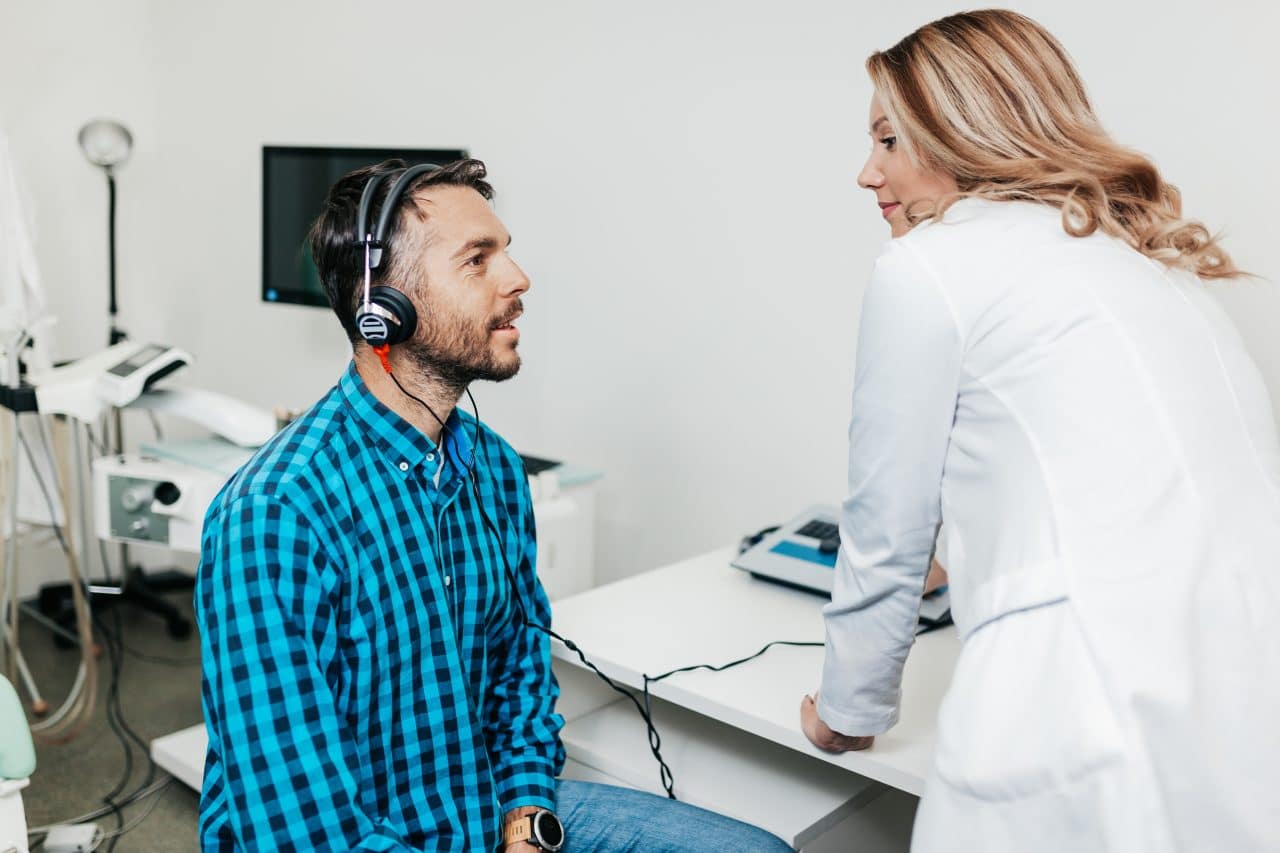Noise-induced hearing loss is the second most common type of hearing loss, following an age-related hearing loss (presbycusis). It is also the most preventable type. Below we review what causes noise-induced hearing loss, how prevalent it is, what the most common symptoms are and how it can be prevented.
How Does Noise-Induced Hearing Loss Occur?

Within the inner ears are tiny hair cells called stereocilia. These cells are responsible for converting sound vibrations into electrical impulses that travel via the brain to the auditory nerve to be interpreted as sound. Each cell is responsible for a different frequency.
When dangerously loud sounds pass through the ears, it can damage or destroy these hair cells. Any sound over 85 dB it thought to cause permanent sensorineural hearing loss with enough exposure. For reference, below is a list of common sounds and their average decibel outputs:
- Normal breathing: 10 dB
- Rustling leaves: 20 dB
- Whispering: 30 dB
- Refrigerator humming: 40 dB
- Normal conversation: 50 dB
- Laughter: 60 dB
- Vacuum cleaner: 70 dB
- City traffic: 80 dB
- Lawnmower: 90 dB
- Garbage truck: 100 dB
- Jackhammer: 110 dB
- Thunder: 120 dB
- Shotgun firing: 130 dB
- Fireworks: 140 dB
How Common Is Noise-Induced Hearing Loss?
The Centers for Disease Control and Prevention (CDC) reports that approximately 12.5% of children and adolescents ages 6-19 (5.2 million young people) and 17% of adults ages 20-69 (26 million people) have permanent damage to their hearing caused by exposure to loud sounds.
In addition, according to the World Health Organization (WHO), 50% of young people ages 12-35 (1.1 billion people) are at risk of noise-induced hearing loss.
What Are the Symptoms of Noise-Induced Hearing Loss?
While it’s common for your ears to temporarily ring or for you to experience muffled hearing after a concert at StateFarm Arena, if you experience the following symptoms for more than a day or two, you should schedule an appointment with an audiologist:
- Sounds are muffled or distorted.
- You can hear speech but not understand it.
- You can’t follow the conversation when the speaker is more than three feet away.
- You have to turn up the volume on the TV or radio louder than others are comfortable with.
How Can I Prevent Noise-Induced Hearing Loss?
The best way to prevent noise-induced hearing loss is to wear hearing protection when participating in noisy activities like attending a concert, operating power tools, shooting a firearm or watching a firework show. While disposable earplugs from the drugstore can provide adequate protection, custom earmolds from Advanced Hearing are the best option, providing optimal comfort and protection.


